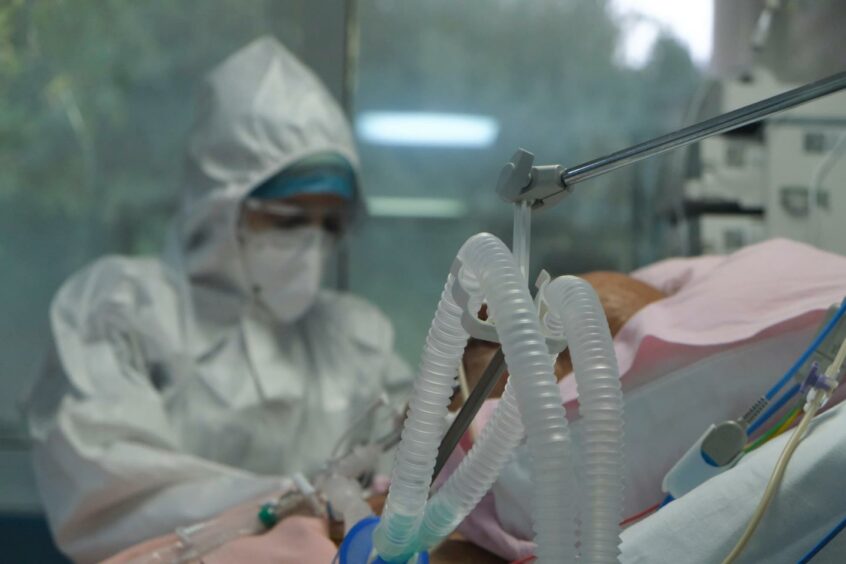New research has found people living with long-term effects of Covid-19 are unlikely to have recovered from complications a year later.
Dundee University’s Professor James Chalmers says the results show the urgent need to develop new treatments for long Covid patients.
- Less than three in 10 patients may be fully recovered a year after being hospitalised with Covid-19;
- Those who were female, obese, and required invasive mechanical ventilation during their hospital stay were least likely to make a full recovery;
- Results suggest the physical and mental health impairments reported are unlikely to be the result of pre-existing conditions
The most common ongoing symptoms of long Covid were fatigue, muscle pain, physically slowing down, poor sleep and breathlessness.
Participants felt their health-related quality of life remained substantially worse one year after hospital discharge, compared to pre-Covid.
‘This is a really nasty, chronic condition’
Professor Chalmers, who represents Scotland on the PHOSP-COVID study management board says: “There is a clear need for a national programme of action to develop new support and treatments for patients experiencing long Covid.
“Until now, there has understandably been a focus on patients presenting with acute Covid-19, particularly those who are hospitalised or who require intensive care.

“That has meant a lot of patients with long Covid have felt forgotten. But these results show it is important we do not let this happen.
“This is a really nasty, chronic condition and there is an urgent need for more treatments that can help.
“More positively, this is the first study to look in detail at what causes long Covid.
“Identifying that an ongoing inflammatory process is at work means we have a potential starting point for developing new treatments that target this inflammation.”
What support is available?
An estimated 92,000 people are living with long-Covid in Scotland.

If you think you have long Covid, you should visit your GP. They will diagnose you if your symptoms cannot be attributed to another condition.
Treatment options vary depending on the symptoms you have, which can be discussed with your GP.











